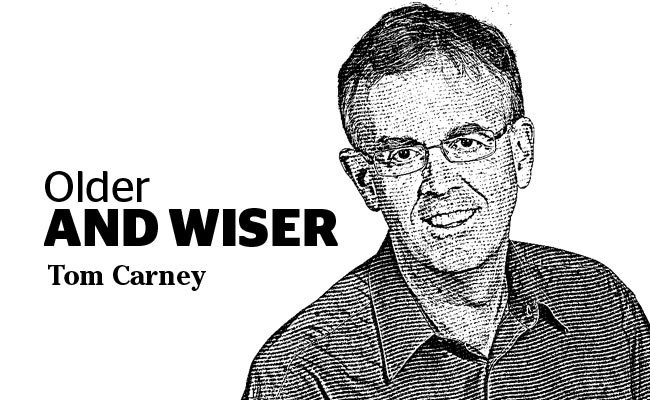I’ve changed my views on some of the issues that I have written about over the years.
When I first started in this business we were mostly concerned about the physical well-being of seniors. Nowadays we talk about how to keep seniors “connected” to the community.
Loneliness, it turns out, is bad for your health. At least as bad, by some accounts, as alcoholism and heavy smoking and twice as bad as obesity.
According to a study from Merrill Lynch and Age Wave, “social connections,” “having purpose” and “mental stimulation” account for 65 per cent of the most pressing losses retirees face in their post-working lives.
Of all the issues that I have covered here in the last decade, the social vulnerability of seniors worries me the most.
I’ve learned the hard way that retirement is about managing your money and your time and in my opinion, we spend too much time worrying about the former and not enough about planning for the latter.
I hear regularly from the group who tell me they don’t need a retirement plan because they are never going to retire. Really!
A recent Morneau Shepell survey found that nearly two-thirds of employees aged 50 and over (61 per cent) are currently suffering from one or more chronic health conditions.
If your plan is to die at your desk that’s your business but odds are that a chronic health condition, not death, is mostly likely to bring your career to an abrupt end. So for goodness sake, get yourself some critical illness or disability insurance and think about whether you really want your legacy to be that you never missed a day of work in your life.
I’ve been all over the map in my columns about physician-assisted death. Many of my readers wanted the government’s legislation on physician-assisted death to include advance directives for patients with conditions such as dementia. They didn’t get that.
Others wanted only those near death to be eligible for medical help in ending their lives. They didn’t get that.
Some were opposed to legalizing assisted death in the first place. They were disappointed too.
I’ve taken a beating in this column, figuratively speaking, for my suggestion that most seniors aren’t poor. Statistics Canada reports that in 1976 a little more than 36 per cent of the elderly were poor. Today that number is between six and 12 per cent, depending on who is doing the measuring and that rate is one of the lowest in the Western world.
So let’s stop the handwringing about Canada being a nation of poor seniors and finally take some action to help those who really are poor.
I’ve probably written a column or two supporting the expansion of the Canada Pension Plan (I’ve logged well over 200 columns so it’s hard to keep track). I wouldn’t do that now. Expanding the CPP may be a good idea or not but, given nearly half of seniors with no CPP live in poverty, increasing the CPP isn’t going to help them. In fact it would simply exacerbate the gap between seniors who are well supported by government income programs and those who are not.
Like many initiatives from government we have the right idea here but we are targeting the wrong group.
On that note this will be my last column. I would like to thank my readers who have been an inspiration to me and the staff at the North Shore News for their professional guidance and support.
Tom Carney is the former executive director of the Lionsview Seniors’ Planning Society. [email protected]



